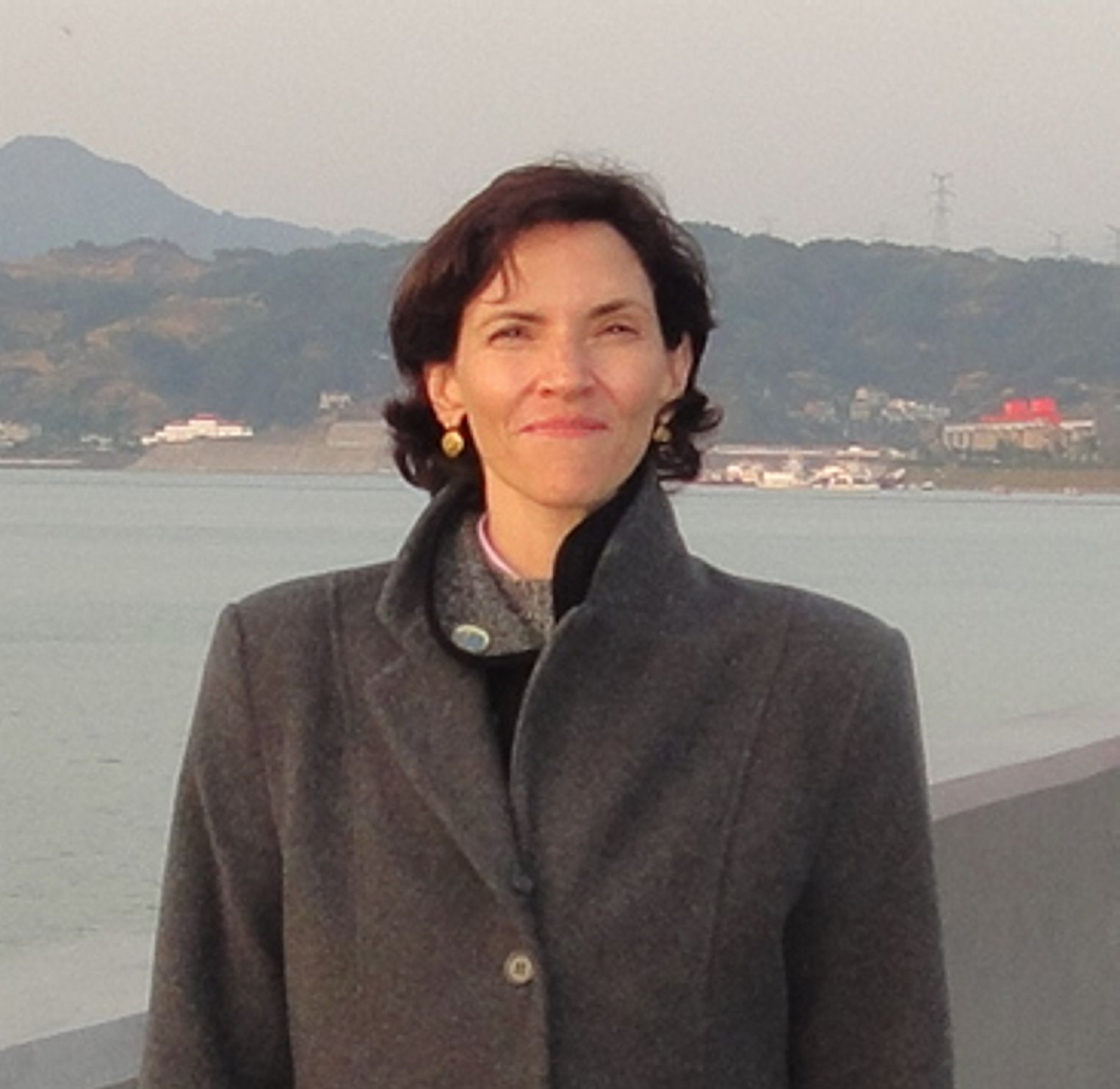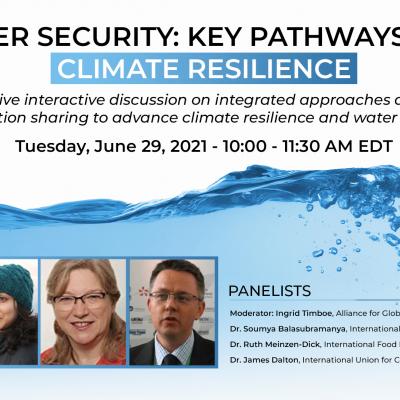COP26: Water Security And Climate Change
Guest Columnists: Asit K Biswas and Cecilia Tortajada, University of Glasgow
21 Oct 2021 by The Water Diplomat
GLASGOW, United Kingdom

As the Climate Change Conference (COP26) in Glasgow commences, Asit K. Biswas and Cecilia Tortajada assess the issues of water security, complexity of management of climate change and this impact on the future of humanity.
Asit K. Biswas is a Distinguished Visiting Professor at University of Glasgow, UK, and Director of Water Management International Pte Ltd of Singapore. Cecilia Tortajada is a Professor at School of Interdisciplinary Studies, University of Glasgow, UK.

The 26th UN Climate Change Conference of the Parties (COP26) will start in Glasgow, 31 October to 12 November 2021. The event will bring together governments to accelerate actions to achieve the goals that were unanimously agreed to in the Paris Agreement during COP21, in 2015. This Agreement was a momentous event during which all the governments of the world agreed to work together so that global warming can be restricted to well below 2°C but aimed for 1.5°C, by adopting effective measures which will reduce the impacts of climate change and make funding available to reach all these goals.
The countries further agreed in Paris to what extent they would reduce their greenhouse gas emissions (GHGs), known as Nationally Determined Contributions (NDCs). They further agreed to update every five years their NDCs that would reflect their best possible intentions. COP26 thus will be an important landmark since countries are expected to announce their latest NDCs during this event.
At the time of COP21, the world did not fully realise the extent to which impacts of climate change may affect humanity and ecosystems. The 2021 assessment of the Intergovernmental Panel on Climate Change (IPCC) indicates that its then most recent assessment in 2013, did not properly capture the likely impacts of climate change on the world. These impacts, for the most part, are likely to be much more severe than expected in 2013.
Globally, extreme weather events are becoming more frequent due to a warming planet which is changing climates. While scientifically it is still not possible to say if a specific climatic event was intensified by global warming, and, if so, by how much, the overall trajectory of available scientific evidence during the last two decades is becoming increasingly clear. This includes higher and more frequent floods, severe and longer droughts, hotter heat waves, bigger storm surges and heavier snowfalls. All these extreme hydrometeorological events, especially during the last ten years, seem to be increasingly breaking existing historical records.
Such extreme hydroclimatic events are now occurring more frequently all over the world. Consider 2021. It started with a record-breaking snowfall in Madrid during the first weeks of the year that resulted in damages costing $1.63 Billion USD (€1.4 Billion EUR). Winter storms in Texas left 3.5 million households without power as the temperature dropped to -13°C. China faced the worst dust storm in a decade, turning Beijing’s sky orange. Serious floods occurred in Germany, Australia, China, India and Indonesia. Extensive forest fires raged in the USA, Canada, France, Greece and Russia, and we experienced soaring unprecedented temperatures in the Pacific Northwest of the USA, Canada and Moscow.
The World Meteorological Organization (WMO) noted climate change and extreme weather events have contributed to a major surge in natural disasters over the last 50 years. There were more than 11,000 such reported disasters globally, resulting in over two million deaths and $3.64 Trillion USD in losses. More than 91% of the deaths were in developing countries. This meant, during this 50-year period, average losses were $202 Million USD each day. What is frightening is losses during 2010−19 were seven times those reported in 1970−79.
The Sixth Assessment Report of the United Nations Intergovernmental Panel on Climate Change, released in August, concluded unequivocally that “human influence has warmed the atmosphere, ocean and land”. It concludes that global surface temperature will continue to increase at least until 2056 “under all emission scenarios”.
A UN report released this year analysed the latest emissions reduction promises of 191 countries and concluded that these would propel the world to a “catastrophic” 2.7°C increase above pre-industrial temperatures, by 2100. This is above the 2015 Paris Climate Agreement of 1.5°C. UN Secretary-General António Guterres called this situation a “code red for humanity.”
-- Water security and climate change
Impacts of climate change will be mostly felt, directly or indirectly, through the medium of water. Floods and droughts happen because either there is too much or too little rainfall. Global warming heats the ocean water causing it to expand and it melts polar ice caps, both contributing to increases in sea level. Steady melting of inland glaciers may increase river flows. However, when glaciers fully melt a major source of river flows will disappear. Flows, subsequently, will decline. Forest fires require dry periods so that under-brushes are dry; thus, fires spread quickly and become difficult to control. Extinguishing forest fires requires a tremendous amount of water.
More heatwaves and warmer temperatures mean increasing need for air conditioning and fans, requiring more electricity. Generating electricity by thermal and nuclear means more water will be necessary for cooling.
While water is an essential consideration for adaptation or mitigating impacts of climate change, there is a fundamental discontent between climatologists and water professionals on how they approach climate change. Climatologists have been primarily preoccupied by averages, i.e., how average global temperature may increase or what will be the average rise of mean sea level.
In contrast, water professionals are not interested in averages but in extreme hydrological events like prolonged droughts and high floods that may occur once every 100−500 years. This is because the water infrastructures are designed on the basis of recurrences of extreme hydrological events. This disconnect may have major consequences in the future.
-- Complexities of managing climate change impact
Managing climate change is a multidimensional and complex issue. The problem has to be tackled globally and by all countries. Reduction of emissions depends on numerous factors, including growth and structure of the population, urbanization, national and global economic growth rates, poverty alleviation, global increase of middle class and their aspirations and dietary patterns, speed and success of energy transition from fossil fuels to other sustainable forms of energy and a host of other associated factors.
If global warming is to be controlled, all countries will have to radically alter their development patterns. Politically and socially, this is a very difficult task.
-- Future of humankind
All major issues facing humankind are interrelated. The dynamics of our future will be determined not by any single issue like climate change, but by the interactions of a multitude of issues.
Increasing population and urbanisation mean more food, energy, water and raw materials are required by an increasingly concentrated population. Common requirements linking all practical responses to the solution of these major problems must include greater investments, higher production, a continuous strive for efficiencies, use of more technology and expertise and intensified global cooperation.
Interrelationships are global, and they can be best understood and resolved within a global framework. While the framework may be global, within this there has to be a wide variety of coordinated national and regional responses.
Humankind has a common future. We survive or perish together, North and South, East and West. Should we ignore this salutary exhortation, we should heed the warning of William Shakespeare: “Men at some times are masters of their fates. The fault … is not in our stars, but in ourselves, that we are underlining.”
Related Topics
21 Oct 2021 GLASGOW, United Kingdom
High-level Forum, Glasgow, pre-COP26 (recorded footage is linked): Speakers included Ministers, heads of international organisations, leading figures from public and private sector...

7 Jul 2021 Washington D.C, United States
A panel discussion hosted by the US Department of State examined how water intersects with climate change at a local and global level and what the sector can do to make water secur...
